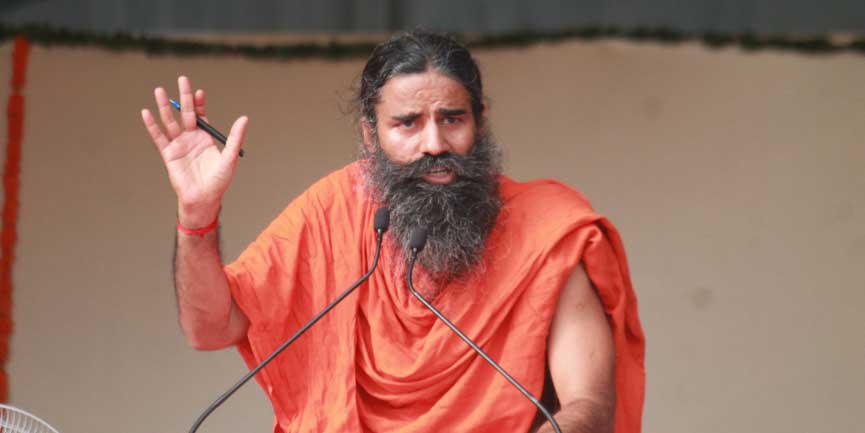The Centre on Tuesday asked Patanjali Ayurved to stop advertising or touting remedies for the coronavirus disease after the company promoted by yoga evangelist Ramdev claimed it has developed a herbal cocktail that promises 100 per cent recovery.
The Union ministry for ayurveda, yoga, unani, siddha and homeopathy said it had asked Patanjali for details of the medicine and any studies on it, pointing out that all Ayush research on Covid-19 should comply with mandatory conditions.
Medical experts said the claim by Patanjali had exposed long-standing loopholes in India’s drug regulatory processes that allow Ayush organisations to make unsubstantiated claims in the pursuit of profits.
Patanjali had earlier during the day claimed at a media conference addressed by Ramdev and other officials that its plant-based product called Coronil had been tested in Covid-19 patients at a private medical college in Jaipur and promises full recovery.
“We’ve prepared the first ayurvedic trial-based medicine for Covid-19. We conducted a clinical study and found 69 per cent patients recovered in three days, 100 per cent recovered in seven days,” Ramdev said at the media conference, the ANI news agency reported.
The medicine has extracts of the traditional plants ashwagandha, giloy and tulsi which have been shown through independent research studies earlier to display anti-viral and immunomodulating properties, said Mahesh Vyas, a senior researcher at the All India Institute of Ayurveda, New Delhi.
However, the study involved 100 Covid-19 patients who had no symptoms or only mild symptoms, two senior doctors at the privately run National Institute of Medical Sciences (NIMS), Jaipur, the study’s site, told The Telegraph.
Medical experts point out that observations worldwide suggest that Covid-19 is a mild disease in 80 per cent of infected persons who recover spontaneously without the need for medical intervention.
The Patanjali study’s principal investigator, Ganpat Devpura, a professor of medicine at NIMS, said 69 per cent of 50 patients who received the medicine were free of the virus on Day 3 and 100 per cent on Day 7, while only 65 per cent of 50 patients who received placebo were free of the virus on Day 7.
All patients recovered and went home, Devpura told this newspaper. “We also plan to publish these findings,” he said.
Senior pharmacology and medicine specialists said such a study does not in any way establish the benefit of the drug on patients as the duration of virus shedding varies from person to person.
Patients may shed the virus for up to 20 days after it enters the body, said Shri Prakash Kalantri, professor of medicine at the Mahatma Gandhi Institute of Medical Sciences, Wardha.
“Can a drug reduce death rates? Can a drug reduce the need for ventilators? Can a drug reduce the length of stay in an intensive care unit? These are the questions that will tell us whether a drug benefits patients,” Kalantri told this newspaper.
The Ayush ministry, concerned about unsubstantiated claims about Ayush and Covid-19, had in April directed that all Ayush studies be registered on a national clinical trial database and that their patients’ sample size should withstand statistical scrutiny.
While the Patanjali study is registered on the database, medical experts point out that its sample size of 100 patients is not large enough for a meaningful analysis of how a medicine might influence outcomes in patients with mild symptoms.
Pharmacology experts point out that Indian drug regulatory processes allow organisations to develop and market ayurvedic products without rigorous clinical trials if the ingredients of the products are mentioned in ancient classical ayurvedic texts.
“We must subject products from ayurveda to the same methodological rigour as we do for clinical trials in modern medicine,” Kalantri said.
There is currently no proven anti-viral therapy specifically for Covid-19 and doctors around the world provide patients supportive therapy such as oxygen and anti-inflammatory drugs while waiting for the body’s immune system to fight the virus.
However, many countries, including India, have approved two anti-virals — remdesivir and favipiravir — for restricted emergency use in Covid-19 patients on the basis of limited evidence.
India on Tuesday recorded 14,933 new Covid-19 cases, raising the number of total confirmed cases to 440,215, of whom 178,014 are under medical supervision, 248,190 have recovered and 14,011 have died.










